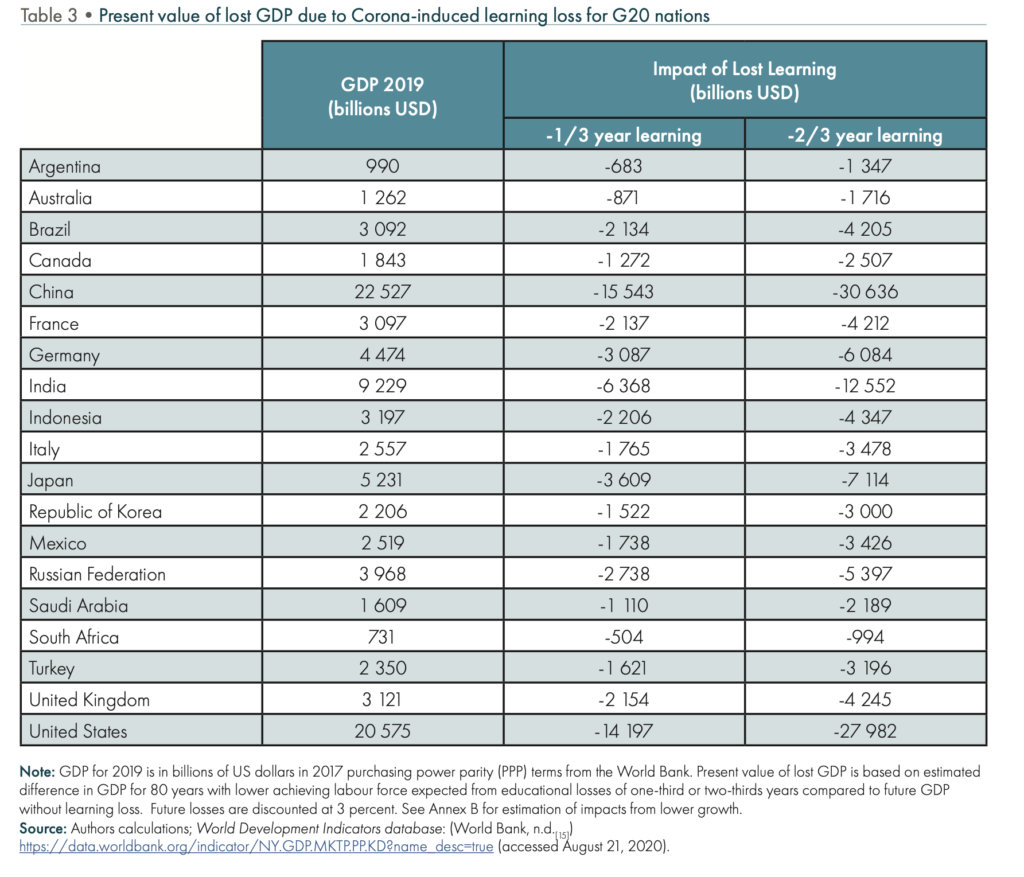School Closures’ Long-Term Impact on U.S. Economy at More Than $14 Trillion
Research has shown that continued school closures will have long-term detrimental educational consequences that decrease academic readiness, exacerbate academic disparities, and impact socio-emotional and motivational development. School closures will also negatively impact the economy for the rest of the 21st century, according to new research by the international Organization for Economic Cooperation and Development.
These estimates assume that only the cohort currently in school is affected by the closures and that all subsequent cohorts resume to normal schooling.
If schools are slow to return to prior levels of performance, the growth losses will be proportionately higher.
…
[F]or the United States, if the student cohorts in school during the 2020 closures record a corona-induced loss of skills of one tenth of a standard deviation and if all cohorts thereafter return to previous levels, the 1.5% loss in future GDP would be equivalent to a total economic loss of USD 14.2 trillion.
…
The overall economic costs of lost learning are not less if they affect all pupils equally. The notion that lost years of schooling are not so bad if they affect everyone are based on the erroneous assumption of a national economic “cake” of fixed size and that education largely serves to determine the share of income going to each individual. But the cake shrinks when everyone reaches a lower level of education; the entire economy suffers, not least because of higher burdens on social security systems and lost tax revenues for social tasks.
If lost learning continues for another three months, the lost GDP increases to nearly $28 trillion. When learning loss occurs, skill loss follows, which then translates into lost productivity.
Education equips people with the skills that make them more productive at carrying out their work tasks, particularly in modern knowledge-based economies. Education also provides knowledge and skills that enable people to generate and apply new ideas and innovations that enable technological progress and overall economic growth.
How do we make up for learning losses? According to the report, we can’t return to the status quo. “If these students are to be remediated, it would require improving the schools, not returning schools to where they were in 2019.” One improvement would be moving toward more individualized instruction.
Students would work on specific learning modules until they could demonstrate that they have completely mastered them. At that time, they would move forward, regardless of what other students in their classes were doing. Students in the same classroom could have differentiated learning goals, ranging from the understanding of basic concepts to the mastery of deep academic challenges in each area.
The education burdens and economic losses from school closures will hit some students—lower income students—harder than others. COVID has peeled back the layers of the broken status quo. Will we use this opportunity to make schools better or will we allow our current students to bear the costs for years into the future?
